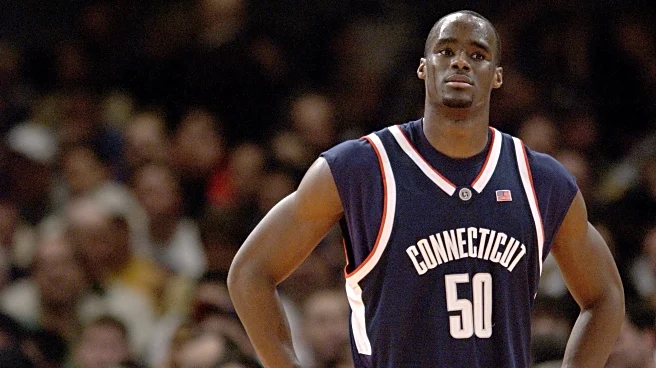What's Happening?
Lenny Wilkens, a legendary figure in basketball, passed away at the age of 88. Wilkens was one of the few individuals inducted into the Naismith Basketball Hall of Fame as both a player and a coach. His
family announced his death but did not disclose the cause. Wilkens was a nine-time All-Star point guard from 1960 to 1975 and was inducted into the Hall of Fame as a player in 1989 and as a coach in 1998. He led the Seattle SuperSonics to the 1979 NBA title and held the NBA victories record of 1,332 when he retired after the 2004-05 season. NBA Commissioner Adam Silver praised Wilkens for his contributions to the sport and his commitment to service, particularly in Seattle, where a statue stands in his honor.
Why It's Important?
Lenny Wilkens' passing marks the loss of a significant figure in basketball history. His dual induction into the Hall of Fame as both a player and coach highlights his exceptional contributions to the sport. Wilkens influenced generations of players and coaches, serving as a mentor and ambassador for basketball. His legacy includes not only his achievements on the court but also his dedication to community service, particularly in Seattle. The impact of his career is reflected in the respect and admiration he garnered from peers and fans alike, underscoring his role in shaping the NBA and its culture.
What's Next?
The basketball community is likely to honor Wilkens' legacy through tributes and memorials. His influence on the sport and his contributions to the community may inspire future initiatives to commemorate his life and work. The unveiling of his statue outside Climate Pledge Arena in Seattle earlier this year serves as a lasting tribute to his impact on the city and the sport. As the NBA continues to evolve, Wilkens' legacy will remain a benchmark for excellence and integrity in coaching and playing.
Beyond the Headlines
Wilkens' career exemplifies the intersection of sports and community service, highlighting the role athletes can play beyond the court. His commitment to mentoring young people and his involvement in community initiatives reflect the broader cultural impact of sports figures. Wilkens' life serves as a reminder of the potential for sports to foster positive change and influence society, encouraging athletes to engage with their communities and use their platforms for good.










